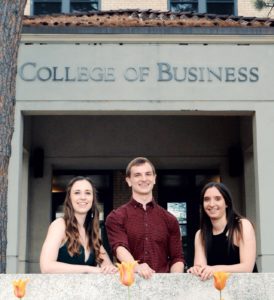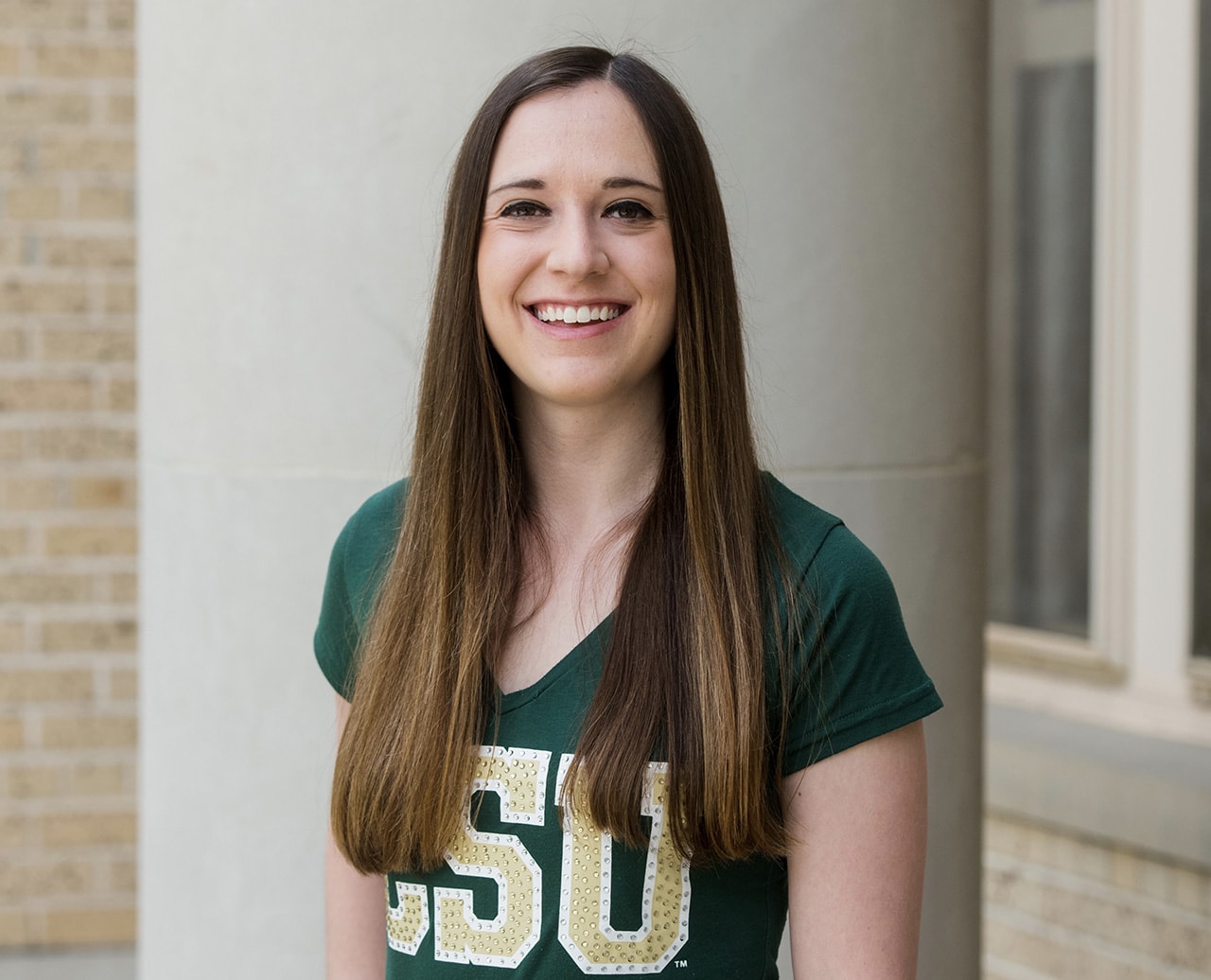Biz Ram Earns Prestigious Elijah Watt Sells Award
By most standards, performing in the top 1 percent of any field confers elite status. College of Business Master of Accountancy graduate Kathryn Coleman blew right past that threshold when her CPA exam scores qualified her to be one of 137 recipients of the American Institute of CPAs’s 2019 Elijah Watt Sells Award.
Nearly 75,000 accountants sat for the exam – and roughly half of those failed.
Coleman qualified for the award by scoring a cumulative average score of 95.5 percent across all four of the Uniform CPA Exam’s sections on her first attempt. Only 0.18 percent of individuals who sat for the exam in 2019 met the requirements for the award.
Any aspiring certified public accountants looking to crack Coleman’s secret and fast-track their own performance on the exams will be disappointed, however. Nothing fancier than old-fashioned studying produced her elite scores. Starting in the summer between wrapping up her bachelor’s degree in the College of Business’s accounting program and her start here as a graduate student, she devoted herself to hitting the books with a single-minded focus on the financial accounting and reporting portion of the exam.
“Every weekend I would study. Every day I would study,” Coleman said. “I felt like I over prepared when I got my scores. It was like, ‘Oh, my God!’ It was the hardest section that I took first. It was my lowest score, because that was the hardest one. I think once I did that and I worked hard, I figured I might as well work hard on the rest of them.”

So she buckled down and invested hundreds of hours of study into the next three four-hour portions of the exam while staying on campus to work on her masters of accountancy. Although the demands of the exams were heavy, she had a strong foundation upon which to build: Her undergraduate classes led to a “busy season” internship with Deloitte, putting her in the mix of a big four accounting firm from January to May, the height of tax season.
“I felt like going out and doing the internship really pushes you to think about it from a real-world perspective,” said Coleman. “The accounting program at CSU is great about encouraging students to think about their future and think about internships really early on.”
A position at Deloitte awaited her on the other side of her master’s program, so she sought a quick path to licensure before the hectic 50- to 60-hour schedules of a professional tax accountant would command her schedule.
Not to diminish the workload of preparing to sit for CPA exams while also in a master’s program, but Coleman said immersion in accountancy added dimension to her studies on both fronts.
“When I was in school, I was a nerd, so when I took the test, it was another way for me to review or go over stuff that I had already gone over,” she said. “The CPA is definitely a marathon and not a sprint. Cramming for it is not possible.”
A Matter of Thinking
The College of Business didn’t merely prepare Coleman with the knowledge base to succeed on the exams. It gave her the perspective to untangle complicated situations using systemic logical thinking.
“I think the most important skill you learn in college is the ability to problem-solve and become accustomed to not always knowing the answer without putting in some effort,” she explained. “I found success on the CPA exam is not about memorization, but the ability to think through scenarios you have never seen before but have all the tools to solve.”

Independent thinking isn’t what many people think of when they think of tax accounting, but Coleman said deep analysis and consideration of strategies that drew her to the field in the first place. She has the kind of mind that sees a set of client’s books as a puzzle to be solved rather than rows of numbers waiting to be computed.
“It’s the thinking piece of it, like everything fits together. I think minds that are drawn to things fitting together is what drew me to it,” she said. “It’s all the thought ahead of that that’s interesting. We take book numbers and we have to look through that and determine what has a tax impact.
“There’s also the law, the Internal Revenue Code, that impacts how we would treat that on a tax return. You don’t just look through all the accounts and go, ‘OK, there’s meals. That’s 50 percent deductible.’ Some things are a lot harder to determine the treatment of. That’s the interesting part of the job.”
A Biz Ram Family
Her time at the College of Business armed her with a working knowledge of tax code and analysis, but as a second-generation Biz Ram, Coleman probably had an inkling of the myriad ways the College would prepare her for success following in the footsteps of her mother, who studied finance and her father, who became a CPA after graduating from the accounting program. More remarkably, Coleman’s one of a set of triplets who all studied accounting at the College of Business. Her sister recently passed her CPA exams and her brother is studying for his turn.
Of course, that arrangement brings up questions about sibling rivalry. “We’re not that competitive,” Coleman laughs. “They’re kind of like, ‘Good for you, but we’re not trying to strive for that.’”
That’s probably a reasonable strategy. After all, not everyone can be like Coleman and among the 0.2 percent who receive the Elijah Watt Sells Award.
